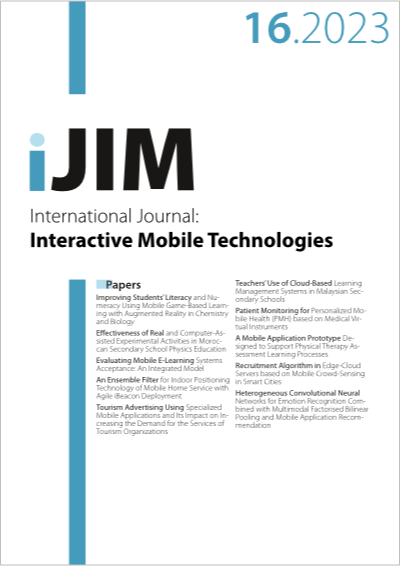Evaluating Mobile E-Learning Systems Acceptance: An Integrated Model
DOI:
https://doi.org/10.3991/ijim.v17i16.42679Keywords:
Information Systems; Distance Learning Acceptance; Mobile E-learning Systems; Technology Acceptance Model; Structural Equation Modeling.Abstract
Previous studies have confirmed that managers need to develop influencing strategies to encourage employees to accept mobile information systems. Despite the recognition in past research that external variables can influence employee’s perceptions, the explanation of how their approval of the framework is affected by these external variables’ pathways or procedures remains limited. Participants were selected from Malaysian institutions that have previously rolled out mobile e-learning technologies into their operations. Empirical findings disclose that source credibility is positively associated with playfulness, perceived ease of use, and perceived usefulness. Similarly, organizational support and task equivocality are significantly related to perceived ease of use and perceived usefulness. Additionally, perceived ease of use positively affects playfulness, perceived usefulness, and employee attitude. Finally, an employee’s attitude is positively and significantly related to behavioral intentions (BI). The findings of this study provide insight for firms considering implementing a mobile information system at all levels of their institutions. Furthermore, it offers employees valuable information about the system, its value, benefits, and advantages.
Downloads
Published
How to Cite
Issue
Section
License
Copyright (c) 2023 Ibrahim A Abu-AlSondos, Anas A. Salameh, Abeer F. Alkhwaldi, Alaa S. Mushtaha, Maha Shehadeh, Ala'a Al-junaidi

This work is licensed under a Creative Commons Attribution 4.0 International License.



